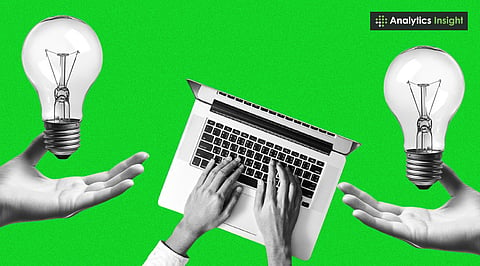

AI applications are rapidly evolving across healthcare, finance, education, and entertainment.
Understanding how AI works in real-world scenarios helps demystify the technology.
Businesses and individuals are using top AI applications to improve efficiency, accuracy, and decision-making.
Technology has advanced tremendously and has automated several tasks across various industries, such as managing the supply chain for online stores and performing intricate surgeries using robots. From small businesses to medical centres, everyone is readily adopting artificial intelligence in their workflows. This article discusses what AI is and the top artificial intelligence applications.
Artificial intelligence is an advanced technology that allows computers and machines to learn from data, understand problems or situations, and make decisions accordingly. AI is used to improve human-computer interactions and automate heavy-duty tasks, saving time, effort, and money.
Many businesses and organizations have turned to AI to reduce human-error-based mishaps and losses. Here are some common examples of how top AI applications are easing the burden across numerous sectors:
AI in finance can help reduce fraudulent activities, detect identity theft, and track suspicious transactions. The machine learning models are trained to stop unauthorised access to the bank accounts and alert the authorities of such occurrences. AI can also study large volumes of historical and live data to help investors make informed decisions.
Also Read: Artificial Intelligence Explained: Concepts and Applications
AI in healthcare can help speed up the diagnosis, detect different diseases such as cancer and Thyroid, accelerate drug discovery, and personalize treatments for patients. Many reputed hospitals and medical centres use AI chatbots to answer patient queries. Robots are also being used to perform crucial surgeries where precision and accuracy are top priorities.
One of the best examples of AI’s use case is self-driving cars, where sensors and software are used to provide real-time updates on traffic and find routes. The technology can also perform predictive maintenance and alert drivers, preventing unexpected failures and extending the vehicle’s life.
AI is used in many music apps to organize and personalize playlists. It analyzes the listener’s preferences and offers recommendations. This technology is also used in the gaming sector to study the behaviour of the players and adapt the game’s environment and difficulty levels.
Using AI for education can be beneficial for students and teachers. Many AI tools provide personalized learning benefits to the students. They help students find information on the subjects they are studying and even explain complex concepts in simple terms and images for better understanding. Teachers can use AI to conduct tests and draft assignments.
AI-powered chatbots and voice assistants are widely used in many businesses today to gather information and draw insights on the company’s products. These chatbots work like customer representatives and answer customer queries tirelessly 24/7. They help understand the customer’s sentiment regarding particular brands, saving time on market research.
AI works effectively in the e-commerce field as it personalizes online shopping by suggesting the best products to the buyers. The machine studies the buyer’s behavior and recommends products based on their preferences, budget, and inventory.
Also Read: Top 10 Unusual Applications of Artificial Intelligence in Use
Technology is evolving every single day with new means of simplifying human life. AI has made its way into most sectors today and plays a crucial role in task automation, in-depth analysis, and trend identification. This article covers the top uses of artificial intelligence in the real world, hinting at the potential this technology has in streamlining workflows across industries.
